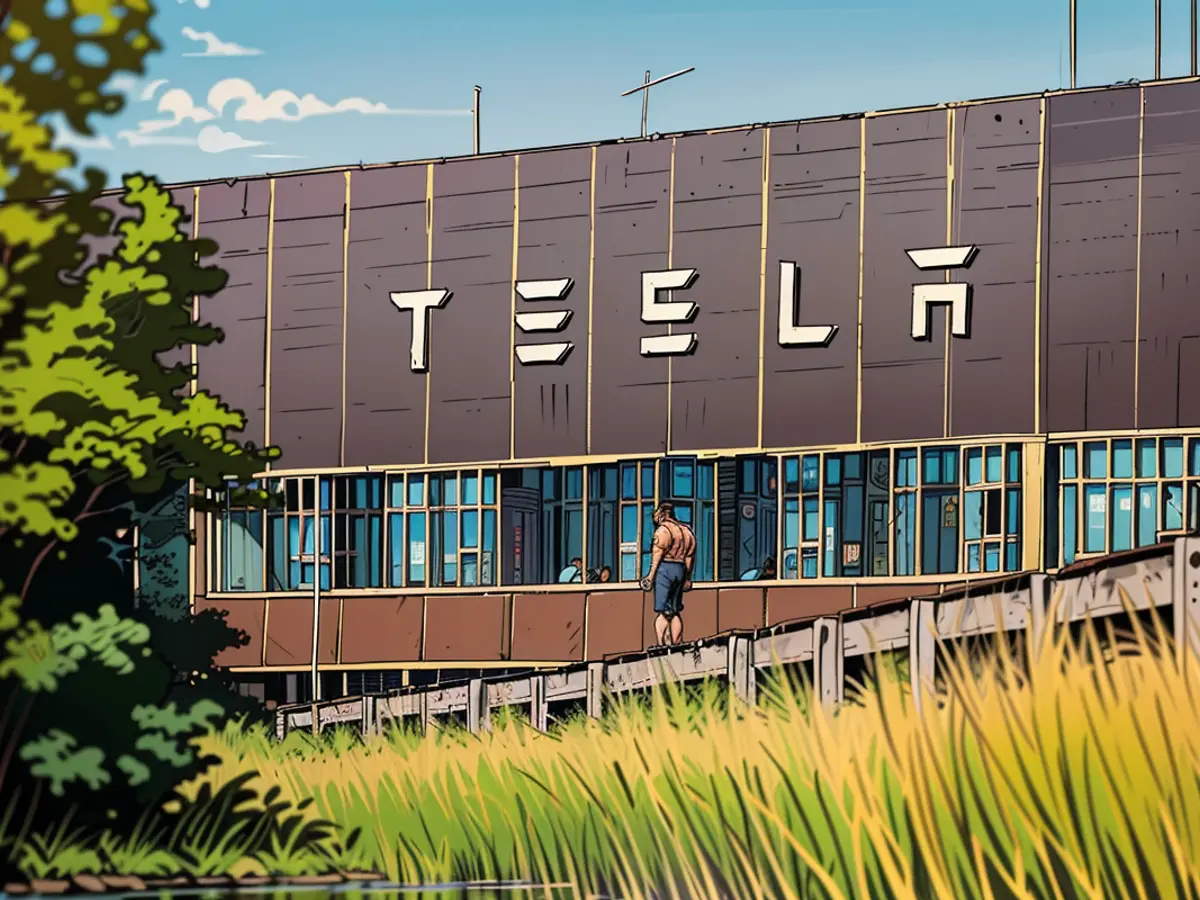Tesla employee proposes increase in home visits
Tesla's Plant Manager in Grünheide defends Home Visits for Regular Absentees.Manager André Thierig justifies the practice of unannounced home visits for workers frequently taking sick leave at the Tesla plant. He suggests that this isn't an unusual approach for companies and aims to stimulate the employees' work ethic. However, the union IG Metall criticizes the potentially excessive workload at the factory and views the home visits as an unusual measure.
The visits came about due to an unusually high absence rate during summer months, which reached 15% or more at times. Thierig identified around 200 staff members who did not attend work but continued to receive their pay and submit new sick notes every six weeks. The plant manager and personnel manager made home visits to some of these employees, but many were not home, and some displayed aggressive behavior.
Thierig does not believe that the high absentee rate stems from poor working conditions. Instead, his analysis shows that oversubscription is more prevalent on Fridays and late shifts, accounting for about 5% more absenteeism than on other days. He contends that the German social system might be being exploited, given the considerable discrepancy in absentee rates between permanent staff and the 1,500 temporary workers, who each have a 2% absentee rate and work under the same conditions.
Thierig maintains that Tesla does not distrust sick employees but wishes to understand their situation better. He believes that face-to-face interaction has a greater impact compared to phone calls and that the absentee rate has decreased since the home visits. Despite this, he does not reject the possibility of future home visits.
Regarding the criticism by IG Metall Berlin-Brandenburg-Sachsen, spokesperson Dirk Schulze points out the pressure that sick employees face. He highlights that staff from all areas of the plant report unusually high workloads. When employees are absent, the remaining workers are pressured while additional work is assigned to the healthy employees. Schulze suggests breaking the vicious cycle by reducing absenteeism to alleviate the pressure on both groups. Tesla, for its part, provides various resources to promote health protection and improve working conditions, such as a fitness studio, in-house doctors, physiotherapists, and ergonomic modifications to workstations.
The concerns raised by IG Metall about the potential excessive workload at the Tesla plant largely revolve around the economy, as high absenteeism can lead to increased workloads for the remaining employees and potential financial implications for the company.
Thierig's assertion that the German social system might be being exploited in regards to the high absenteeism rate between permanent staff and temporary workers further highlights the economic implications of this issue.








